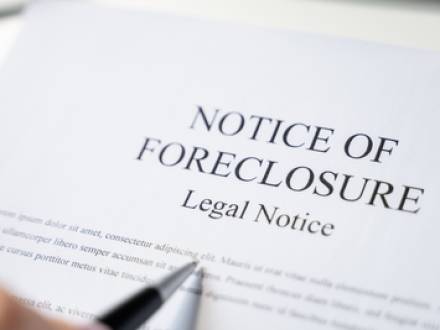1512 Artaius Parkway, Suite 300,
Libertyville, IL 60048
Call for a FREE Phone Consultation
847-549-0000
Video Consultations Also Available
 Spanish
Spanish Cantonese
CantoneseServing Clients Across 7 Illinois Locations
Illinois Foreclosure Deficiency Judgments Explained
 Many Illinois homeowners believe that once their home has been foreclosed on and sold, they no longer have any financial obligations related to the home. Unfortunately, that is not always the case. Under Illinois law, mortgage lenders may pursue a deficiency judgment. This is a court order requiring the borrower to pay the remaining balance if the foreclosure sale does not cover the full amount of the mortgage debt.
Many Illinois homeowners believe that once their home has been foreclosed on and sold, they no longer have any financial obligations related to the home. Unfortunately, that is not always the case. Under Illinois law, mortgage lenders may pursue a deficiency judgment. This is a court order requiring the borrower to pay the remaining balance if the foreclosure sale does not cover the full amount of the mortgage debt.
Whether or not a bank can or will sue depends on the type of foreclosure, the sale price, and how the judgment was entered. A Round Lake, IL foreclosure defense attorney can help you understand how deficiency judgments work and how to challenge or limit those judgments.
What You Must Know About Deficiency Judgments
Illinois law (735 ILCS 5/15-1511) addresses how a deficiency judgment may be entered when a foreclosure sale fails to satisfy the balance due on the mortgage. The lender must file a motion with the court to request a deficiency judgment. At that point, the court will verify that the sale price was fair, which can be a safeguard against the lender accepting a low offer. If the court finds that the home's sale price was not fair, the lender must provide evidence of value through appraisals and other comparable listings to justify the sale price.
If the court approves the deficiency judgment, the lender can pursue wage garnishment, place a lien on other property owned by the individual, or even take money from his or her bank account. A deficiency judgment will negatively affect the borrower’s credit score for seven years and can definitely hinder future borrowing ability.
What Is the Difference Between an "In Personam" Deficiency Judgment and an "In Rem" Judgment?
An in personam judgment in Illinois is a personal judgment against the borrower. This type of judgment allows the lender to pursue other assets and income to collect the deficiency judgment. An in rem judgment is a judgment against the property itself. This type of judgment limits the lender to taking back the property and prevents it from suing for the deficiency.
An in personam judgment can only be issued if the borrower was properly served with legal papers, while an in rem judgment focuses solely on the property and its legal claim. The lender’s legal recourse in an in rem judgment is limited to obtaining the property through the foreclosure process and evicting the occupants.
What Are the Alternatives to a Deficiency Judgment?
There may be alternatives to a deficiency judgment that can have a better outcome than owing money to the lender after a foreclosure. These alternatives include:
- A short sale, which means the home is sold for less than the outstanding mortgage balance, and the lender agrees to accept this amount and forgive the remaining debt. It is crucial that the deficiency waiver is in writing from the lender.
- A deed in lieu of foreclosure allows the borrower to transfer ownership of the property to the lender rather than going through the foreclosure process. An agreement must be negotiated that waives the deficiency in exchange for the property.
- Those who have fallen behind on mortgage payments but want to keep their home may be able to negotiate a plan to repay the missed payments, plus an additional amount over time.
- A loan modification asks the lender to change the terms of the loan, perhaps extending the loan term or lowering the interest rate to make payments more manageable.
- In some cases, a borrower can negotiate with the lender to forgive the deficiency debt outright following foreclosure.
- Filing for Chapter 7 or Chapter 13 bankruptcy can discharge most deficiency judgments as they are treated as unsecured debt.
Contact a Lake County, IL Foreclosure Lawyer
If you are facing foreclosure or have recently lost your Illinois home to a sale, you may still be at risk for a deficiency judgment. An experienced Round Lake, IL foreclosure defense attorney from Newland & Newland, LLP can determine whether the bank followed proper procedures and help you explore options to eliminate the remaining debt. Our attorneys are local to Illinois and always put our clients and communities first. Call 847-549-0000 to schedule your free consultation.
 Stop Foreclosure
Stop Foreclosure




















